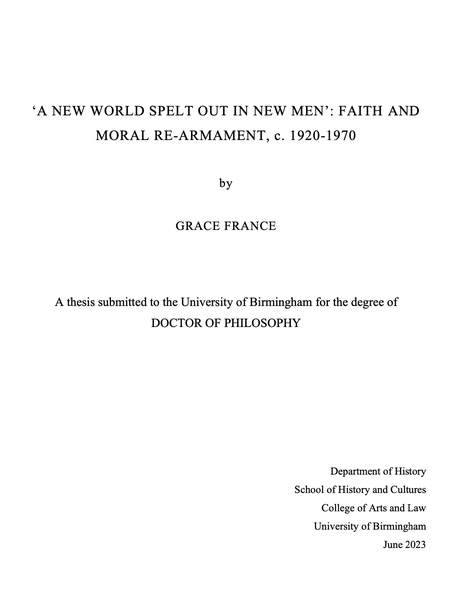Abstract:
This thesis uses Moral Re-Armament - the evangelical Christian group previously known as The Oxford Group and currently known as Initiatives of Change, which was operational worldwide from the 1920s onward - to demonstrate that religious groups were able to change and adapt to the perceived challenges facing Christianity throughout the twentieth century. By doing so, this thesis directly challenges the assumption made by existing historiographies that a modernising Britain was fundamentally incompatible with faith.
Adopting a change-not-decline approach to religion, the thesis brings to the forefront the non-traditional and alternative ways of believing which can be seen in Moral Re-Armament: ways of believing which have typically been dismissed by advocates of the secularisation theory as remnants of a lost religious society, or a desperate last-attempt to uphold the importance of faith in a presumed-to-be secular Britain. By exploring the design and dissemination of Moral Re-Armament’s faith, as well as the intense devotion of its followers, this thesis argues that twentieth century Britain continued to witness meaningful experiences of Christianity which were adapted and made new.
Additionally, this thesis addresses the surprising lack of historical attention received by a group as large as Moral Re-Armament, particularly within its British context, given its importance to the stories we tell about religious belief in twentieth century Britain. Ultimately, what is made clear through an exploration of Moral Re-Armament is the importance of moving away from historical narratives which presume religious decline and consequently ignore the very valid and real expressions of faith which remain.
English

